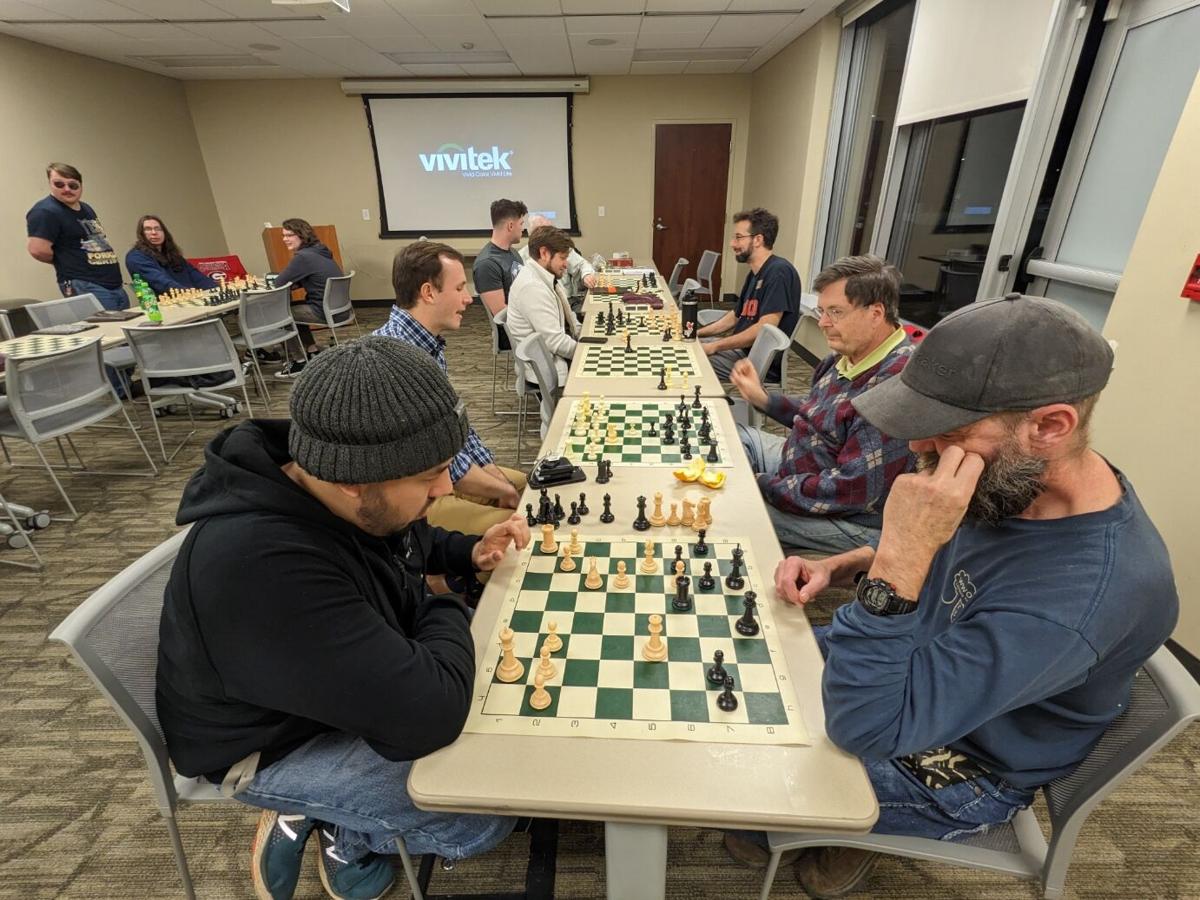Unless you enter a quad, you will most likely compete in a Swiss-system chess tournament. That means you could face players with a range of ratings. A club event might only have one or two sections, but larger events routinely have many sections.
Sometimes, you have a choice of sections — your “natural” section, and a higher one (“playing up”). Which should you choose?
Example
A player with a 1550 U.S. Chess Federation rating wants to enter a 5-round, multi-section chess tournament. Each section is 200 points apart, starting at Under 1200.
Their “natural” section would be Under 1600, as they are rated too high to enter Under 1400. They could, however, enter the Under 1800, Under 2000, or Open section if they wish. That’s because “Under” sections only specify an upper limit, not a lower limit.
What should our 1550 player do?
Choosing your section in a multi-section chess tournament
If you’re trying to finish high in the standings, play in lowest section you can.
If you’re trying to gain experience and/or going for a big rating gain, play up one section.
Why is this? You should score more points against lower-rated players than higher rated ones, giving you a higher place in the event. However, you will also gain less rating points from facing “weaker” players, while risking more. Stay in your section if the goal is to win money or an important title.
If you play in a higher section, losing even a string of games won’t affect your rating much. And if you score 50%, you’ll likely gain a lot of rating points. Of course, you can’t expect to finish high in the standings if you take this path.
Psychology Matters
Our 1550 playing in Under 1600 would expect to score at least 3 points out of 5, and would be aiming for 4 points or more. Scoring 50%, 2½ points out of 5, would be a disappointment. Expectations like this can create pressure.
If our 1550 played in Under 1800, 2 points out of 5 would be decent, and anything more would be a success. While that does create less (internal) pressure to perform, it can also lead to not giving your absolute best.
There’s no right answer. It all depends on the psychological makeup of the player. After playing in your section a few times, and playing up a few times, you’ll get a sense of what usually works better for you.
For most of my career, I “overscored” against weaker opponents. At one point I had a career mark of 88% against players rated 200 points below me—when I statistically should have been scoring about 75%. So I scored 7 points out 8 against such players, instead of 6 out of 8.
On the other hand, I underperformed badly against players rated 200 or more points above me!
Why did this happen? Deep down, I believed too much in ratings, even though they’re just probabilities. Facing a much lower-rated player, I expected to win for sure if I didn’t play terribly. Being paired against much higher-rated opponents intimidated me before the game began.
Still, I usually played up when I had the chance! While I had some successes, more often than not this was a bad strategy for my psychology.
Chess tournament sections: an important distinction
 The USCF rating classes. FIDE awards Grandmaster titles.
The USCF rating classes. FIDE awards Grandmaster titles.
If the tournament instead had Class C, Class B, Class A, and Expert/Master sections, only players in these categories could enter the specified section. The chart on the right gives the rating ranges for each “class.” All players rated less than 2000 are called “class players.”
